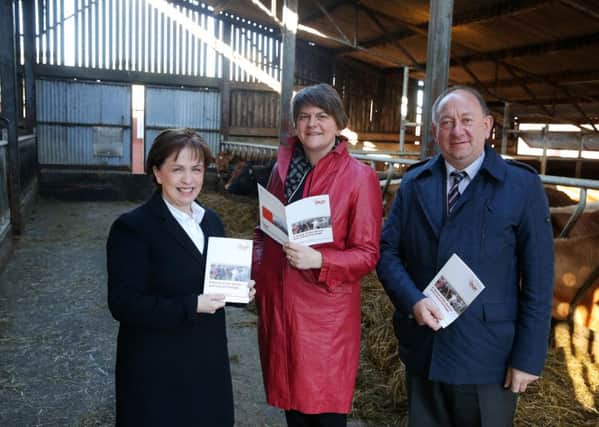DUP wants agriculture and food sectors to forge closer links with DEFRA


“The ongoing delay in getting clearance to export pork products from Northern Ireland to China is a case in point,” she said.
“DEFRA is the lead agency in this regard. And, on that basis, our own department of agriculture cannot be expected to undertake all of the work required to deliver on the full certification procedures required by the myriad importing countries interested in doing business with local food processors.
Advertisement
Advertisement
“However, I feel strongly that many of the problems encountered, where the attainment of export certification status is concerned, could be ironed out much more quickly had officials here in Northern Ireland a better working relationship with their counterparts in London. And the previous agri food regime, headed up by Michelle O’Neill, must take some of the responsibility for this state of affairs.
“The Going for Growth strategy has highlighted the importance of securing new export markets for our beef, dairy, lamb and pork sectors. So the more effective we make the actual export certification process, the easier it should become to convert the tremendous export potential that does exist for our food sector into reality.”
Mrs Foster was speaking at the launch of her party’s assembly election strategy document for farming and food. She confirmed the party remains extremely upbeat regarding the medium and longer prospects for both sectors.
Outgoing chair of the Stormont agriculture committee William Irwin said that the principle of voluntary cut backs in milk production did have merit in terms of its use as a tool to deliver better milk prices for dairy farmers.
Advertisement
Advertisement
“But its implementation would be beset with numerous practical problems,” he added.
“In the first instance, countries like the Republic of Ireland would act to immediately take up any slack in production that might be created, should other EU member states agree to reduce milk output on a voluntary basis.
“Developments of this nature would make the whole exercise entirely futile.”
MEP Diane Dodds remains wedded to the principle of Brussels introducing enhanced intervention support measures for the dairy sector.
Advertisement
Advertisement
“The impact of introducing these measures for a discrete period of time would send out a very positive and re-assuring signal to milk markets around the world,” she said.
“And agriculture commissioner Phil Hogan can draw down money from the EU Emergency Fund in order to make this happen.”
Mrs Dodds also confirmed that Phil Hogan is to go ahead with a mid-term review of the current CAP measures over the coming months.